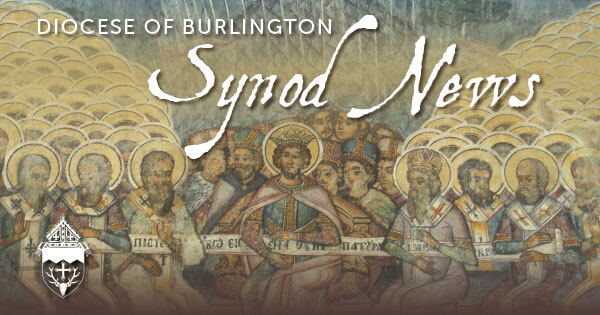
Third session of Diocesan Synod focuses on communications
The third session of the Diocesan Synod centered on the topic of communications.
“There were multiple comments about trying to improve two-way communication, with the thought that although the Diocese is doing a good job sending communications to the parishes via a variety of media, communication back from the parishes to the Diocese may be harder,” said Father Brian O’Donnell, executive secretary for the synod. “It was also noted that some of the diocesan efforts are sometimes frustrated at the parish level, where information is received from the Diocese but not always transmitted to the parishioners.”
This synod session took place at Immaculate Conception Church in Burlington on Nov. 10.
Stephanie Clary, manager of mission outreach and communication for the Diocese of Burlington, made a presentation on diocesan communications, focusing on the improvements made in the last few years and proposals for further improvements in the years to come.
Proposed recommendations regarding communications include entering into a planning process to strengthen the Office of Communications for the Diocese; establishing a communications plan to further the work of evangelization and good communications with those both inside and outside the Church; creating a means by which communication can flow back and forth between the bishop, administrative offices, deaneries, parishes and people; and creating communications uniformity within the Diocese, for example by common email, website and bulletin formats.
The first synod session focused on evangelizing people of all ages; the second session focused on building vibrant parishes.
Burlington Bishop Christopher Coyne has decided that there will be a fourth session; it will take place at St. Joseph Cathedral in Burlington on Jan. 19 (with a snow date of Feb. 2).
“The reason for adding another session seems to be a desire to share with the delegates some sort of draft of the synod document (‘decrees and declarations’) and get their comments on it, as well as, hopefully, a consensus and advisory vote in favor of the document,” Father O’Donnell explained. “The original thought was to simply have the delegates approve the proposed recommendations at the third and final session and have the document drafting occur after that, but the bishop decided to involve the delegates more in that part of the process.”
When the document is in final form and ready to be signed and promulgated, the plan is to have a closing Mass of Thanksgiving at St. Joseph Cathedral at a date to be determined.
In the spring of 2017, Bishop Coyne announced plans to convene the first Diocesan
Synod in Vermont since 1962. Its purpose is to establish a pastoral plan for the immediate future of the Catholic Church in Vermont and to establish particular laws and policies to do so.
To learn more about the synod, visit vermontcatholic.org/synod.

